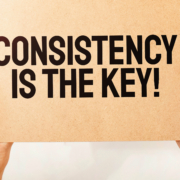Communicating Effectively with YOUR Audience
In a prior blog post, I discussed the fine line between keeping your company communications professional, yet personal. I suggested that high-quality communications are a positive representation of your company, and a personal touch can really help to draw in your audience so that they make a connection with your company. This balance is extremely important to maintain and can make a big difference in your marketing efforts.
Today, I’d like to take this a step further and talk about how to communicate effectively with your target audience. All too often, companies miss the mark when talking about their products and services by not realizing that their audience may not have enough background knowledge to understand their technical terminology. Even though your engineers and scientists may be able to explain company concepts most accurately, it’s important to “translate” this information into common, everyday language.
Here are a few keys to keep in mind:
- Acronyms can be exhausting. Even though the employees of your company may have them down pat, you cannot expect your customers to remember all of your acronyms. If you are going to use them, be sure to define them clearly and often. Limit the number of different acronyms you use. Focus on the most important ones, and build recognition by repetition.
- Internal company lingo or made-up words are cool, but they can also be confusing! If you’re trying to get a new word to pick up traction with your target market, be sure to introduce it in a clever way and use repetition to make the word stick. Eventually, it will hold some value – if you position it correctly.
- Use examples, especially ones that give your audience a mental picture of what you’re talking about. Some people learn best by visualizing. Photographs, diagrams, and videos do a great job of saying a lot in a short amount of time. A picture is worth a thousand words!
- Step outside the box. Or rather, step outside of your company’s four walls – and into the shoes of your audience! A marketing or sales pitch that makes perfect sense during an internal planning meeting may not make a lot of sense to a stranger on the street. (Have you ever seen a commercial that just made absolutely no sense to you, or was so off-the-wall that it actually made you not want to buy the product or service? That’s the kind of thing I’m talking about.) Do your research, test out your pitches on your target audience, and listen to their feedback. It can be very valuable.
- Ask for help. Find someone on your team who is really good at taking technical, difficult-to-understand concepts, products, and terms, and have them help write the “everyday language” version of the information. This person should be involved with your marketing and public relations team as well. Then, leave it to the experts! Your marketing team (whether internal or external) will be able to communicate your information even more clearly. Often times it helps to have someone not associated with the company do the majority of your writing. Because they have to first understand and grasp your concepts in order to write about them, they do a great job of putting it in a way that anyone will understand.
If you keep these tips in mind when preparing your sales and marketing communications, you will certainly notice a better response from your audience which will translate into more success for your company. Not only do we want to keep our communications personal enough to be engaging and professional enough to garner respect, but we also want to speak appropriately and effectively to our audience. Stay tuned for more communication tips in the future!











